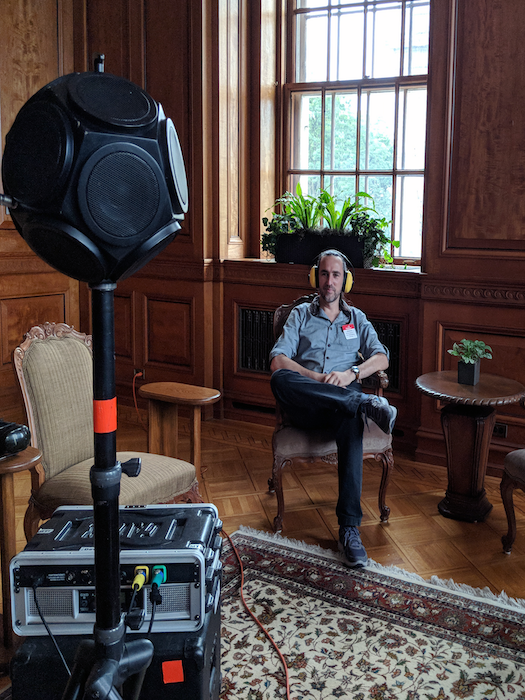
Canadian Consulting Engineer: The future of acoustical provisions in the NBCC
by Canadian Consulting Engineer

Fundamental changes could come in 2025.

As a director of Soft dB’s acoustic and vibration consultancy, Anthony Gérard, ing, specializes in studying noise sources with aerodynamic origin. Photos courtesy Soft dB.
The progression of the National Building Code of Canada (NBCC) from 1941 through to the most recently adopted version in 2015 shows a steady evolution of the acoustical requirements for residential dwellings. From the earliest point, a minimum of sound transmission loss performance was stipulated as a means to limit intrusive noise between dwellings. Further investigation is underway today, through the Canadian Commission on Building and Fire Codes (CCBFC), to determine if and when further additions to and refinements of the NBCC are favoured, which could occur with the next expected publication in 2025. Given the deliberative nature of the process, some or none of the contemplated changes could be incorporated at that time.
As the CCBFC reviews potential further changes to the NBCC, there are a number of topics of interest with regard to acoustics. For one, changes are being considered for impact insulation class (IIC), in terms of making performance testing mandatory. Another topic that has been considered involves controls over the construction of exterior façades a topic area that would reduce the intrusion of noise from outside. And a further area of interest involves low-frequency (LF) sources typically found within mechanical rooms.
One topic that has been deferred to the future involves the extension of the sound transmission class (STC) provisions to both educational and health-care facilities nationwide. This change would greatly expand the scope of application of the NBCC’s acoustical provisions to a wider range of building types. More comprehensive additions throughout the NBCC document would be required to make such a change possible.
This article originally appeared in Canadian Consulting Engineer. Read the full article here.